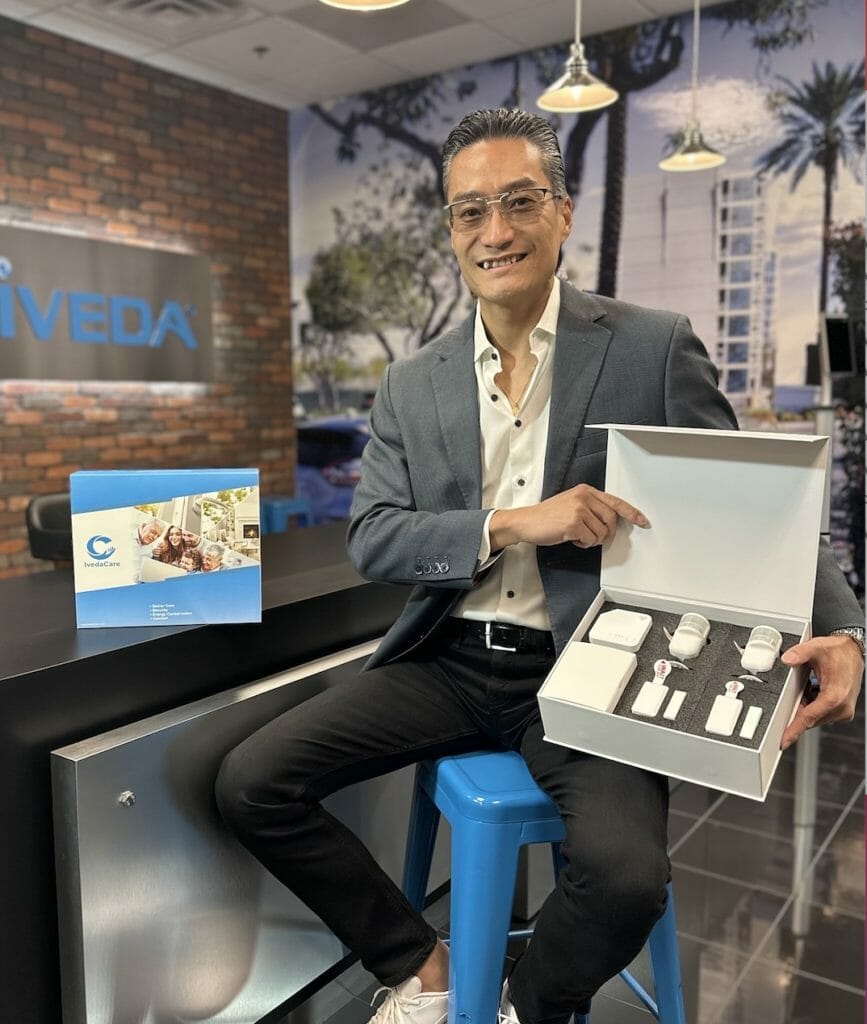
From HAL 9000 in “2001: A Space Odyssey” to Schwarzenegger’s “Terminator,” artificial intelligence is often portrayed as a threat to human existence. To Iveda founder and CEO, David Ly, AI is a useful tool rather than a threat.
“The first thing that comes to mind about AI is that people think it’s ‘Big Brother’ or [Orwell’s] 1984,” he said. “We should think of it as truly added assistance. It simply does what we would want it to do, what we expect it to do, and desire it to do.”
Iveda recently launched its AI assistant for home care, IvedaCare, which is able to provide close monitoring of patients without the intrusiveness of cameras. Sensors are placed throughout the patient’s home to monitor their lifestyle and can be controlled and tracked through a smartphone application. All the data it collects can tell an important story.
“What the AI does is it takes all this data into account and it measures it out,” Ly explained. “It helps make decisions based on activities of the person or patient activity, meaning if I got up at awkward hours, like 2:30 in the morning, that means I didn’t get enough sleep. So the AI works behind the scenes to monitor all the sensor activities, and then returns results to you based on abnormalities.”
From security to medicine
Over eight years ago, before it got involved in home care, Iveda specialized in security. But soon after, it found a more practical application for AI sensors in medicine and quickly adapted.
“What’s great now is that software capability has finally caught up to the physical sensor devices that we’ve all always been using,” Ly said. “So we’ve taken security enabled devices and sensors, and we applied it under a different software platform that makes different decisions as a helping hand in the care and medical industry.”
Other applications
Ly doesn’t see IvedaCare as a technology exclusively based in the home; he believes that it could streamline efficiency at care facilities.
“I believe [IvedaCare] can be a force multiplier. What that means is, even though you may be an institution or a facility that has staff, you have more patients than you may be able to quality, handle and support,” he said. “ Just like nurses at the hospital, they may have 300 beds, but there’s only two nurses on duty. It is real-time technology such as this that will provide the caretaker more virtual hands — more assessment capability without the stress of needing to physically actively monitor something. So you really have a partner in this AI technology.”
Eventually, Ly hopes IvedaCare will be the norm in home care; starter kits begin at $250.
“What I’m hoping to get out of this is that anybody can use this,” he said. “[AI] can comprehend this sophistication of such technology that we hear about in the movies. When you bring it closer to home, closer to the heart, it can be deployed with the simplicity of DIY [‘do-it-yourself’] concepts.”
Home Sweet Home is a feature appearing Mondays in McKnight’s Home Care Daily Pulse. The story focuses on a heartwarming, entertaining or quirky happening affecting the world of home care. If you have a topic that might be worthy of the spotlight in Home Sweet Home, please email Liza Berger at [email protected].



